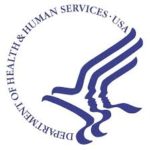The following is the latest health policy news from the federal government for November 10-16. Some of the language used below is taken directly from government documents.
 Congress
Congress
This week Congress passed another continuing resolution (CR) to fund the federal government beyond Friday, when the current CR expires. This bill establishes two separate deadlines for lawmakers to pass certain spending bills so they can avoid an omnibus bill that includes all 12 appropriations bills. Congress must pass four of the spending bills by January 19 and the other bills by February 2. The Labor, HHS, and Education bill, one of the more difficult pieces of legislation to pass, is included in the February 2nd group.
The CR includes a delay of the scheduled cuts to Medicaid DSH allotments through January 19.
White House
By executive order the president has created a White House Initiative on Women’s Health to “… address pervasive gaps in our knowledge of women’s health…” and to “…increase our efforts to invest in research that maximizes our ability to prevent, diagnose, and treat health conditions in women across the United States.” While the initiative will be established within the Office of the First Lady, the Department of Health and Human Services will provide funding and administrative support. Learn more about the new initiative, the composition of its members, and its objectives from this White House memorandum and this White House fact sheet.
 Centers for Medicare & Medicaid Services
Centers for Medicare & Medicaid Services
- CMS has sent an informational bulletin to state Medicaid and CHIP programs describing opportunities available under Medicaid CHIP to cover clinically appropriate and evidence-based services and supports that address health-related social needs (HRSN). The bulletin notes that individuals’ HRSNs are derived from person-specific assessments of social determinants of health (SDOH) and that research has indicated that SDOH and associated HRSN can account for as much as 50 percent of health outcomes. Learn more from this CMS bulletin to states.
- In its recently published CY hospital outpatient prospective payment system and ambulatory surgical payment system final rule, CMS finalized new hospital transparency requirements that take effect on July 1, 2024. To comply with those requirements hospitals must adopt a CMS template layout for the machine-readable file and encode their standard charge information using the CMS technical specifications and data dictionary. CMS has published a number of resources to help hospitals bring their price transparency efforts into compliance with the new guidelines. Learn more about those resources from this CMS bulletin.
- In September, CMS’s Center for Medicare and Medicaid Innovation announced a new, voluntary, state total cost of care model: the States Advancing All-Payer Health Equity Approaches and Development Model (AHEAD). CMS’s goal for the AHEAD Model is to collaborate with states to curb health care cost growth; improve population health; and advance health equity by reducing disparities in health outcomes. CMS will support participating states through various AHEAD Model components that seek to increase investment in primary care, provide financial stability for hospitals, and support beneficiary connection to community resources. Now, CMS has announced the first of two notices of funding opportunities for the model. Learn more about the model from the AHEAD Model’s web page. Eligibility requirements, additional model details, and information about how states can submit proposals can be found in this notice of funding opportunity. The deadlines for states to submit their applications are March 18 for Cohorts 1 and 2 and August 12 for Cohort 3.
- In cooperation with the White House and HHS, CMS released several resources designed to help support federal agencies, states, and local and tribal governments to better coordinate health care, public health, and social services and address social determinants of health. The White House has released its “U.S. Playbook to Address Social Determinants of Health” while HHS has published “Call to Action to Address Health Related Social Needs, and a Medicaid and CHIP Health-Related Social Needs Framework.” Find links to these documents, learn more about them, and find links to other federal resources from this HHS news release.
- CMS has announced a final rule that implements a portion of the Affordable Care Act requiring the disclosure of certain ownership, managerial, and other information about Medicare skilled nursing facilities and Medicaid nursing facilities. The final rule, which specifies the manner in which entities will submit required information, compels Medicare skilled nursing facilities and Medicaid nursing facilities to disclose specific data upon initial enrollment and revalidation, including ownership and change of ownership; their trustees; additional parties with a financial interest in the facilities and their operation; the participation of private equity and real estate investment trusts; and public posting of this information. CMS intends to issue sub-regulatory guidance to explain the new requirements. Learn more about why CMS has adopted this rule and what it involves from this CMS news release; this CMS fact sheet; and this pre-publication version of the final rule. The new requirements will take effect 60 days after official publication of the final rule, currently scheduled for November 17.
- CMS has issued its Notice of Benefit and Payment Parameters (Payment Notice) for 2025 proposed rule. This rule proposes standards for issuers and marketplaces and requirements for agents, brokers, web-brokers, direct enrollment entities, and assisters that help marketplace consumers. Among the changes in the proposed notice, it calls for:
- enhanced network adequacy standards;
- permitting states to add routine adult dental services to Essential Health Benefits benchmark plans;
- revised Essential Health Benefits drug benefit requirements;
- greater flexibility for states to disregard some resources for non-modified adjusted gross income populations; and
- changes in special enrollment periods.
Learn about these and other changes from this CMS fact sheet and this draft of the proposed rule, which has not yet been scheduled for publication in the Federal Register.
- HHS has established a new Secretary’s Advisory Committee on Long COVID. The purpose of the committee is to make recommendations on research and innovation to help guide the federal response to the longer-term effects of COVID-19. Learn more about the committee from this HHS news release. The committee will consist of up to 20 members chosen to reflect a diversity of experiences, perspectives, and backgrounds. HHS seeks individuals interested in serving on this committee. To learn more about how the committee will function, the qualities it seeks in potential members, and how to submit nominations, see this pre-publication version of an upcoming Federal Register notice. The deadline for submitting nominations is January 16.
- CMS has issued a bulletin informing providers of the introduction of marriage and family therapists and mental health counselors as eligible participants under the Medicare physician fee schedule effective January 1, 2024; they were added as eligible Medicare providers by the Consolidated Appropriations Act of 2023. Find that bulletin here and an FAQ about these providers here.
- Earlier this year, CMS’s Center for Medicare and Medicaid Innovation announced a new voluntary nationwide model, its “Guiding an Improved Dementia Experience Model,” that seeks to test ways to support people living with dementia and their unpaid caregivers. Now, the agency is accepting applications to participate in the model. Learn more from the model’s web page and this request for applications, which includes additional information about the model and eligibility requirements. The deadline for submitting applications is January 30.
- CMS has posted a notice about changes in the home health prospective payment system that will take effect in calendar year 2024. Find that notice here.
- CMS has posted a notice about provider enrollment changes to the Medicare program integrity manual. Find that notice here.
- CMS has posted a notice about separate payments for disposable negative pressure wound therapy devices on home health claims. Find that notice here.
- CMS has introduced two CPT codes that cover certain diagnostic tests performed by audiologists without a physician order. Learn more about the circumstances under which these codes can be used from this CMS notice.
- CMS has published information about the improper payments it estimates making during FY 2023. In publishing this information, the agency notes that not all improper payments are fraud or abuse, that they can be both overpayments and underpayments, and that most improper payments involve situations in which a state, contractor, or provider misses an administrative step. CMS breaks down these improper payments according to major program type. Learn more from this CMS news release.
- CMS has sent an informational bulletin to the states providing guidance on adding sexual orientation and gender identity questions to state Medicaid and CHIP applications for coverage. Adding such questions is optional for states. Find that bulletin here.
- CMS has sent an informational bulletin to state Medicaid programs providing an update on its 2024 Supplemental Security Income (SSI) and spousal impoverishment standards and its 2024 resource standards for Medicare Savings Program groups. Find the bulletin and the new standards here.
- The doctors and clinicians preview period for data to be used on the Medicare Compare site is now open. During this period providers can preview their 2022 Quality Payment Program performance information before it will appear on clinician and group profile pages on the Medicare.gov compare tool and in the Provider Data Catalog. For information about where and how to view this data and how to get answers to questions about the data, see this CMS notice. The preview period ends December 13.
- CMS has posted resources to guide users through the process of creating an HCQIS Access Roles and Profile (HARP) account, connecting to an organization, and managing their access so they can view, submit, and update their Quality Payment Program data. To find those resources go here, scroll down to “full resource library,” and click “Quality Payment Program Access User Guide” for the downloadable zip file.
- CMS has posted a document that provides guidance about the 2023 Merit-based Incentive Payment System (MIPS) Automatic Extreme and Uncontrollable Circumstances Policy for clinicians affected by natural disasters and other uncontrollable events during 2023. To find those resources go here, scroll down to “full resource library,” and click “2023 MIPS Automatic Extreme and Uncontrollable Circumstances Policy Fact Sheet” for an automatic download of the file.
 Department of Health and Human Services
Department of Health and Human Services
- The COVID-19 Provider Relief Fund reporting portal is now open for providers that have been approved to submit a late report for reporting period 5. Those providers must return unused funds to HHS’s Health Resources and Services Administration (HRSA) within 30 days of submitting their report. The portal will remain open until December 2. Learn more here.
- HRSA has begun issuing final repayment notices to recipients of Provider Relief Fund payments that are required to repay funds. Providers that would like to request a review of HRSA’s decision to seek repayment may request a decision review. For more information about repayment and decision views, see HRSA’s repayment and debt collection web page.
- HHS and its Substance Abuse and Mental Health Services Administration (SAMHSA) have released the results of SAMHSA’s 2022 National Survey on Drug Use and Health. The report shows how Americans reported their experience with mental health, substance use, and treatment-related behaviors in 2022. Learn more about the report and find its highlights from this HHS news release and find the complete report here.
- HHS’s Administration for Strategic Preparedness and Response has posted a document offering resources and strategies for health care organizations working to address provider shortages. Find it here.
- HHS’s Office of the Inspector General (OIG) has published its annual report describing the top management and performance challenges facing HHS. Find the report here.
- HHS’s OIG has published its health care fraud and abuse control program annual report for FY 2022. Find the report here.
- HHS’s OIG has updated its work plan for audits and studies for the month of November. Find the updated work plan here.
HHS Newsletters
- CMS – MLN Connects – November 16
- AHRQ News Now – November 14
- HRSA eNews – November 16
Food and Drug Administration
- The FDA has cleared for marketing the first over-the-counter antigen test for COVID-19. Originally authorized for emergency use in 2021, it is now the second home COVID-19 test to successfully complete a traditional FDA premarket review pathway and the first indicated for use in children under 18. Learn more about the test and its intended use from this FDA news release.
- The FDA has granted marketing authorization for the first diagnostic test for chlamydia and gonorrhea using at-home sample collection. Until now, the only cleared tests for either condition required samples collected at the point of care, such as a doctor’s office. Learn more about the new test, how it is administered, and its intended uses from this FDA news release.
Centers for Disease Control and Prevention
Following reports from multiple states to the FDA about reported potential cases of high blood lead levels in children consuming recalled cinnamon-containing applesauce that has high levels of lead, the CDC has issued a health advisory encouraging clinicians and health departments to consider the possibility of illness due to lead exposure and report cases to their local health authorities. Learn more from this CDC notice.
 Stakeholder Events
Stakeholder Events
CMMI – Making Care Primary Model Office Hours – November 21
CMS’s Center for Medicare and Medicaid Innovation (CMMI) will hold an office hours webinar on Tuesday, November 21 at 2:00 (eastern) to answer questions about the model in advance of the model application deadline of November 30. For resources on applying to participate in the model, an opportunity to submit questions in advance, and to register to participate, see this CMMI announcement.
CMS – Healthcare Common Procedure Coding System Public Meeting – November 28-30
CMS will hold virtual public meetings from November 28 through November 30 to discuss its preliminary coding, Medicare benefit category, and payment determinations for new revisions to the HCPCS Level II code set for non-drug and non-biological products. Learn more about the meeting, why it is being held, its agenda, how it will be conducted, and how to register from this formal CMS notice.
CMS – Inpatient Rehabilitation Facility Prospective Payment System: Coverage Requirements Webinar – November 29
CMS will hold a webinar on inpatient rehabilitation facility prospective payment system coverage requirements on Wednesday, November 29 at 1:30 (eastern). During the webinar CMS will review inpatient rehabilitation facility prospective payment system coverage requirements from pre-admission to discharge and provide a refresher on existing payment requirements and answer common payment system questions. Go here to register to participate.
CMS – Medicaid and CHIP Renewals –December 6
HHS and CMS have been holding a series of monthly webinars on Medicaid and CHIP renewals to educate partners. Topic covered vary each month. The final webinar will be held on Wednesday, December 6 at noon (eastern) Go here to register to participate and go here for recordings, transcripts, and slides from past webinars.
HHS – Agency for Healthcare Research and Quality – Webinar on Child HCAHPS Survey – December 6
HHS’s Agency for Healthcare Research and Quality will hold a webinar on its consumer assessment of healthcare providers and systems child hospital survey database and narrative items on Wednesday, December 6 at 1:00 (eastern). Speakers will provide an overview of the Consumer Assessment of Healthcare Providers and Systems Child Hospital Survey (Child HCAHPS Survey), including highlights from current data, steps for and benefits of future participation, and details about the new narrative item set. Go here to learn more about the webinar and to register to participate.
MedPAC – December 7-8
The Medicare Payment Advisory Commission will hold its next public meeting on Thursday, December 7 and Friday, December 8. The meeting’s agenda and information about how to participate virtually have not yet been released but when they are they will be posted here.
CMS – Town Hall Meeting on FY 2025 Applications for New Medical Services and Technologies Add-On Payments – December 13-14
CMS will hold a virtual town hall meeting on Wednesday, December 13 and Thursday, December 14 during which organizations representing hospitals, physicians, manufacturers, and other interested parties may present comments, recommendations, and data to CMS’s clinical staff about whether individual services or technologies represents a substantial clinical improvement. The meeting will include a discussion of the substantial clinical improvement criteria for the FY 2025 applications for new technology add-on payments. Learn more about the meeting, why it is being held, what it will address, and how to participate from this CMS notice.
MACPAC – December 14-15
The Medicaid and CHIP Payment and Access Commission will hold its next public meeting on Thursday, December 14 and Friday, December 15. The meeting’s agenda and information about how to participate virtually have not yet been released but when they are they will be posted here.
CMS – Hospital Price Transparency Webinar – January 17
To help hospitals prepare for meeting new requirements for price transparency, CMS will hold a webinar on Wednesday, January 17 at 2:00 (eastern) to review the new requirements; to present examples of how to encode machine-readable file standard charge information in the template layout CMS will require hospitals to use; and to demonstrate its “GitHub” repository. Go here to register to participate.

 Centers for Medicare & Medicaid Services
Centers for Medicare & Medicaid Services Stakeholder Events
Stakeholder Events